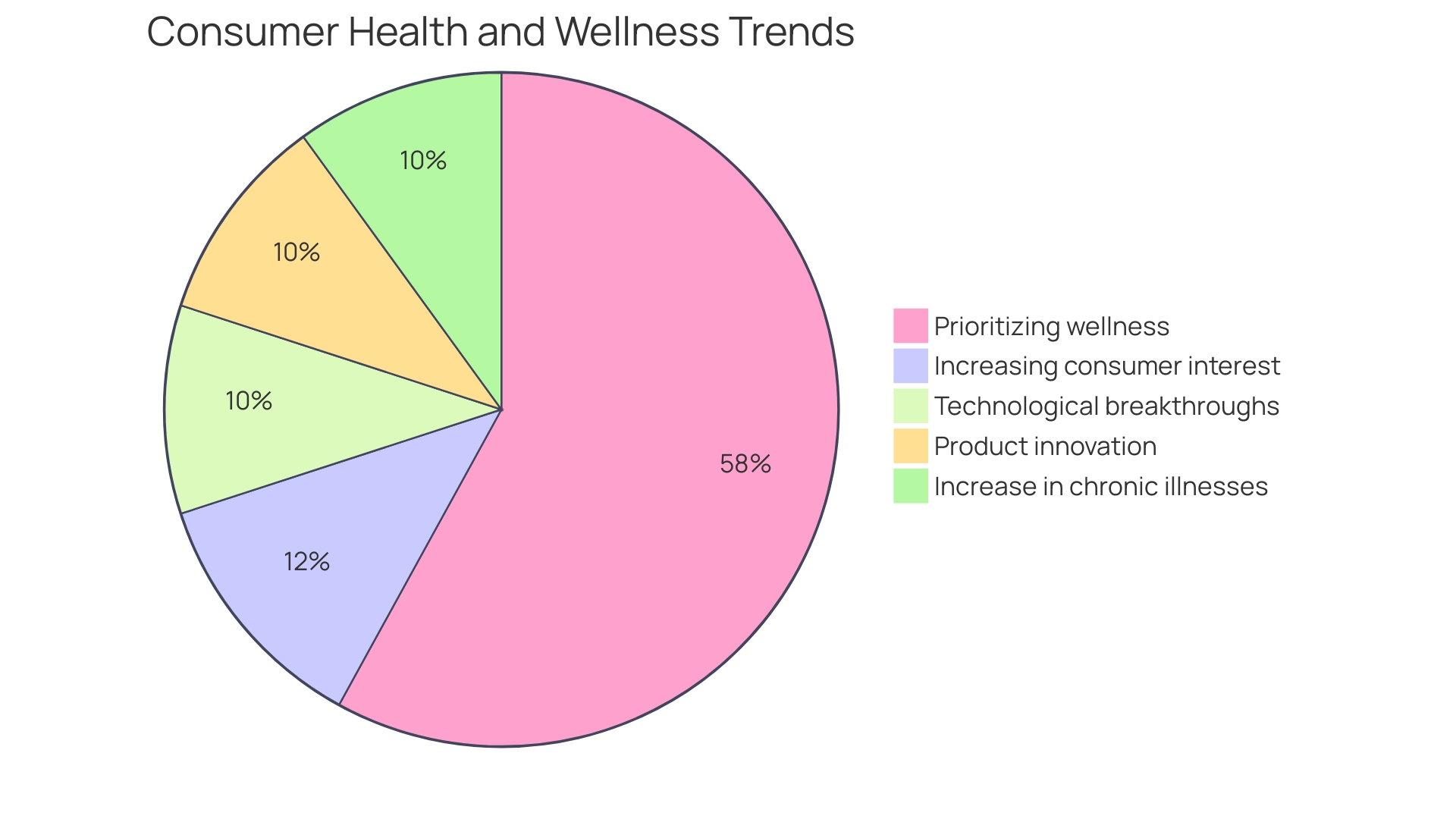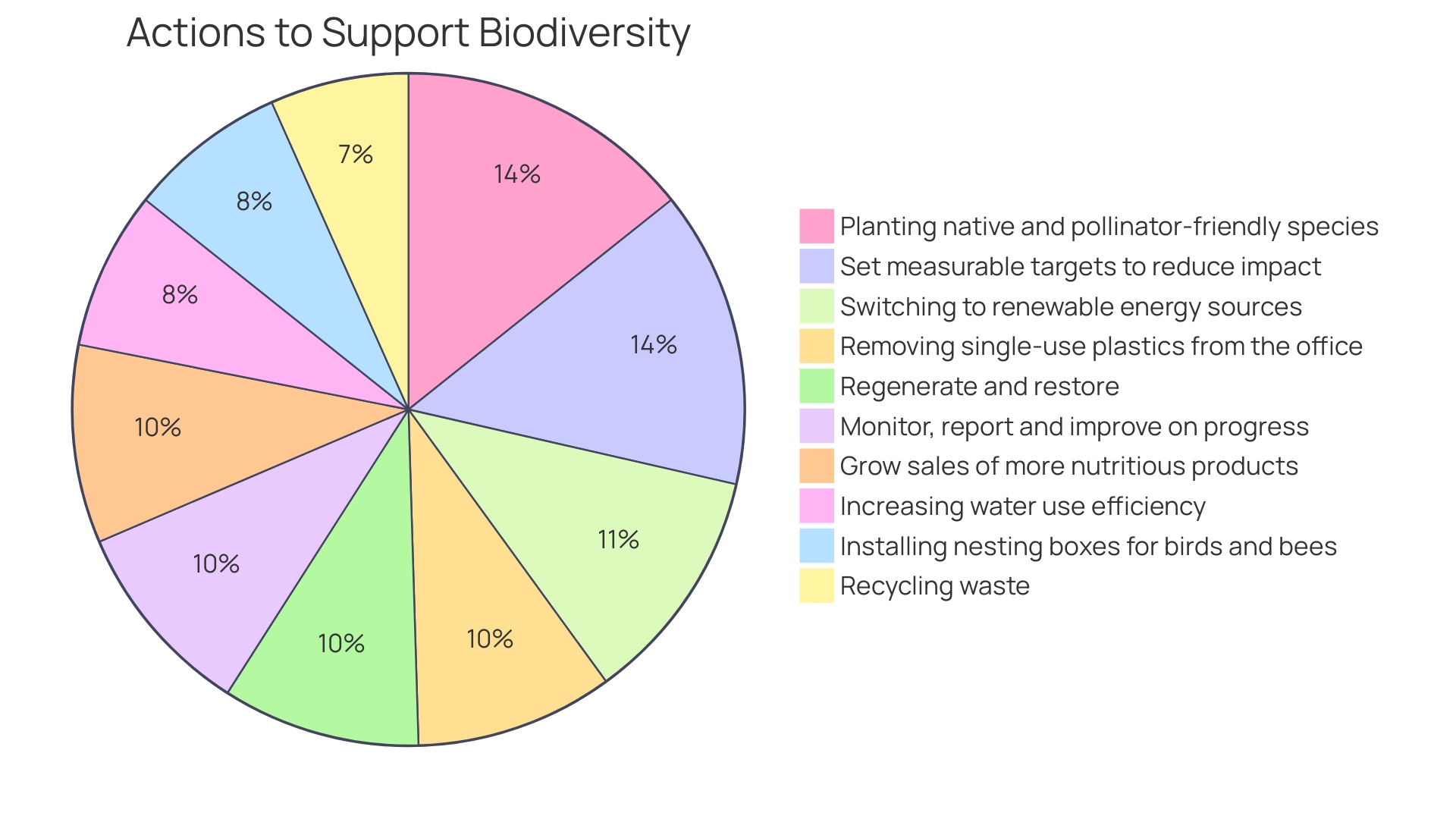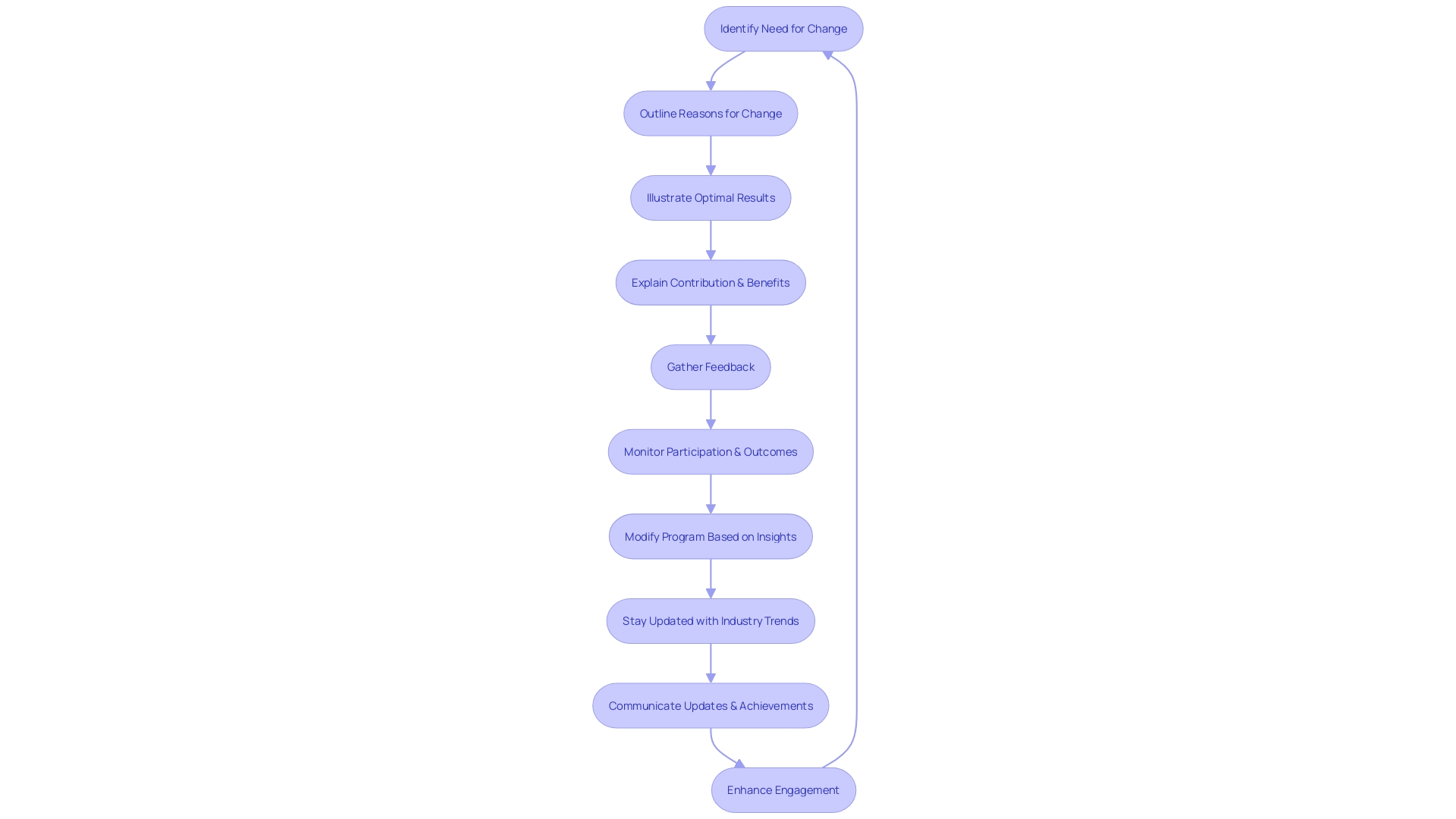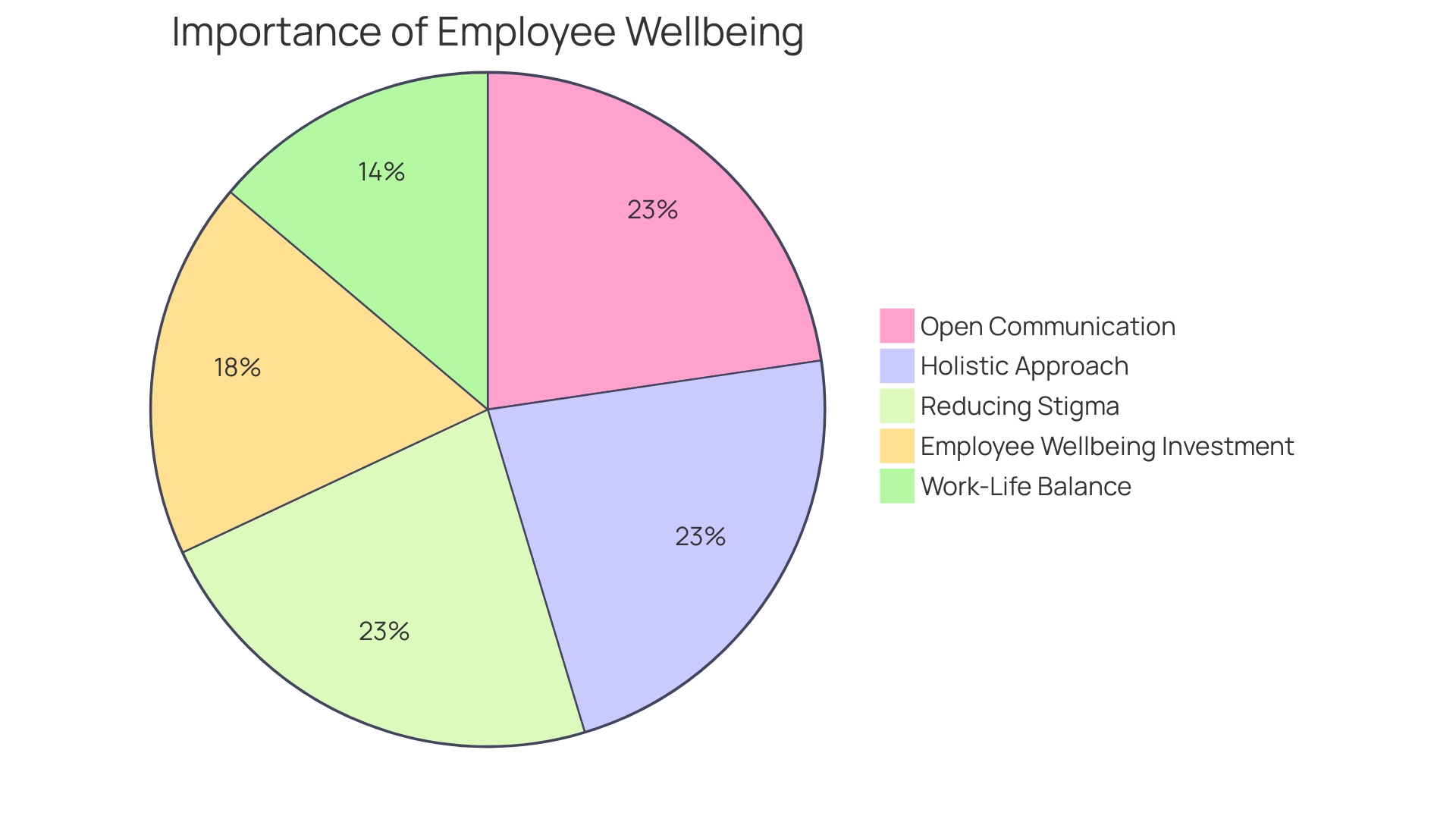Introduction
Implementing corporate wellness nutrition programs is more than just a trend; it's a strategic move towards a healthier, more productive workplace. These programs are tailored to improve employee well-being, offering a plethora of advantages that go hand-in-hand with organizational success. From improved physical health and increased energy and productivity to enhanced mental well-being and a positive work environment, the benefits are undeniable.
In this article, we will explore the key components of effective corporate nutrition programs, strategies for implementation, challenges and solutions, engaging employees, and evaluating and adapting these programs. We will also delve into case studies and best practices that highlight the transformative impact of prioritizing employee nutrition. By prioritizing the well-being of your team through comprehensive nutrition programs, you are not only investing in their health but also paving the way for enhanced growth, innovation, and outcomes.
Benefits of Corporate Wellness Nutrition Programs
Introducing corporate wellness nutrition initiatives is more than just a fad; it's a strategic step towards a healthier, more productive workplace. These programs are designed to enhance the well-being of staff, providing a myriad of benefits that coincide with organizational success.
-
Improved Physical Health: The statistics are alarming; 41.9% of the U.S. population struggles with obesity. However, a well-balanced diet is a powerful tool against chronic diseases like obesity, diabetes, and heart disease. By incorporating healthy meal choices into the workplace, companies can play a key role in helping workers maintain a healthy weight and effectively manage their well-being.
-
Enhanced Energy and Productivity: Energy and productivity are closely connected to dietary intake. A diet rich in essential nutrients can boost cognitive function and sustain energy levels, vitalizing employees throughout their workday. This improved vigor is fundamental to enhancing workplace performance and output.
-
Improved Psychological Wellness: Mental well-being is closely connected to dietary habits. Nutrients such as omega-3 fatty acids, vitamins B12, and D are known for their positive effects on mood and their ability to lessen symptoms of depression and anxiety. Nutritional initiatives within the corporate setting are essential tools in nurturing the mental health of the workforce.
-
Positive Work Environment: A commitment to employee nourishment cultivates a positive work environment, signaling to employees that their well-being takes precedence. This can fortify a sense of community and drive within the team, reinforcing motivation and loyalty.
The story of Gabriel Lee, who after having a heart attack, sought the structured guidance of the HMS executive course, highlights the transformative effect of lifestyle changes on general well-being. His story is a testament to the power of comprehensive wellness programs that go beyond mere nutrition and embrace all aspects of a healthy lifestyle.
Additionally, the increase in favor for meal prepping and dietary supplements, as indicated in recent news, indicates a growing public concern in assuming control of one's well-being. This trend towards self-care aligns with the encouraging data from the McKinsey Institute, which advocates for a holistic approach to well-being, extending beyond the absence of illness to encompass mental, physical, spiritual, and social well-being.
In the context of the workplace, such comprehensive wellness initiatives can lead to a significant ROI, with the World Health Organization highlighting potential returns of 4 to 6 dollars for every dollar invested, thanks to heightened productivity and lowered costs. Companies that adopt a culture of well-being are not only investing in the health of their workforce but are also paving the way for enhanced growth, innovation, and outcomes.
As stated in Deloitte's report, 80% of organizations now consider the well-being of their staff as a crucial element of their business strategy, with a growing number intending to enhance their investment in wellness initiatives. It is evident that the well-being and healthy habits of staff members are not only advantageous for the individual but also foundational to a flourishing, forward-thinking company.

Key Components of Effective Corporate Nutrition Programs
Elevating the well-being of employees within a company goes beyond just providing a paycheck; it's about nurturing their health through robust nutritional programs. A dynamic approach to corporate nutrition should encompass:
-
Educational Resources: Empower your workforce with knowledge about healthy eating. Utilize interactive workshops, engaging seminars, and accessible online materials to guide them towards understanding the significance of balanced meals, portion sizes, and the benefits of wholesome eating practices.
-
Healthy Food Accessibility: Transform your company's food landscape by offering an array of nutritious choices. Stock cafeterias and vending areas with fresh produce, whole grains, lean proteins, and smart snack selections to simplify healthy decision-making for your team members.
-
Meal Management Tools: Equip employees with practical tools for meal planning and monitoring. Whether it's through innovative apps, user-friendly online platforms, or simple paper-based solutions, these resources can help individuals adhere to their nutritional objectives with ease.
-
Motivate and acknowledge: Encourage engagement in your dietary initiative by introducing attractive rewards. Consider offering discounts on healthier food selections, allocating points towards a wellness program, or celebrating milestones in individuals' dietary journeys.
-
A Culture of Support: Cultivate an environment that prioritizes health and wellness. This involves creating a community that encourages social interaction, accountability, and a positive mindset towards nutritional habits.
By incorporating these components into your corporate nourishment strategy, you're investing in a healthier, more productive workforce. Remember, when your staff flourishes, your business prospers.

Strategies for Implementing Corporate Nutrition Programs
To forge a path toward holistic employee well-being, consider these pivotal strategies for integrating corporate nutrition programs:
-
Undertake a Tailored Needs Assessment: Begin by engaging employees directly to gauge their nutritional needs and preferences. This can include surveys, focus groups, and one-on-one conversations, ensuring that the initiative is responsive to your diverse workforce.
-
Work together with professionals in the field of dietetics: Establish alliances with experts in the field of dietary science, such as registered dietitians, to add credibility and depth to your program. These professionals can create customized dietary plans, conduct informative workshops, and provide ongoing assistance to individuals keen on enhancing their eating habits.
-
Integrate healthy eating into overall well-being: Incorporate nourishment into the fabric of your broader wellness initiatives, emphasizing its crucial role in complete well-being. This integrated approach can foster a supportive environment where making healthy choices becomes second nature.
-
Employ a diverse range of strategies to effectively convey the advantages and operational details of your dietary initiative. Regular updates through emails, posters, and team meetings can maintain enthusiasm and drive participation.
-
Maintain a continuous program evaluation: Create a feedback loop with your staff members and monitor engagement metrics to assess the effectiveness of your nutrition initiatives. Modifications based on worker contentment, dietary alterations, and well-being enhancements can aid in the development of the program to more effectively fulfill the requirements of your workforce.
Implementing these tactics can convert the workplace into a supportive setting where workers flourish. For instance, WK Kellogg Co's Feeding Happiness™ strategy exemplifies the positive impact of prioritizing nutritious foods, with a focus on making eating well effortless, supporting children, and enhancing communities. Similarly, the McKinsey Health Institute encourages a holistic view of health, suggesting that employers are uniquely positioned to improve employees' mental, physical, social, and spiritual well-being.
Moreover, the rising interest in dietary supplements, as indicated by an 80% increase in Google searches over the past five years, points to a growing demand for nutrition-focused initiatives. With the North American dietary supplements market estimated to reach approximately $72 billion by 2026, the trend highlights the significance of employer-backed food and health initiatives.
In the end, a mindful and effectively conveyed diet plan can greatly contribute to a fit and efficient workforce, echoing the idea that proper eating habits are truly a type of medicine for preventing and managing diet-related illnesses.
Challenges and Solutions in Corporate Wellness Nutrition
Managing the intricacies of corporate wellness dietary initiatives can be a multifaceted undertaking. Addressing common hurdles with innovative strategies is key:
-
Increasing Staff Engagement: A common challenge in dietary programs is lackluster staff involvement. Innovative solutions have emerged, like offering a mix of incentives and crafting a supportive environment conducive to well-being. For example, utilizing technology for nutrition education and support not only enhances participation but is in line with workers' increasing demand for digital healthcare solutions, as demonstrated by the success of platforms like Iota in reaching diverse populations with weight management tools.
-
Resource Allocation: When facing budgetary constraints, it's crucial to seek cost-effective strategies. Collaborations with local producers or securing discounts from health-focused vendors can maximize impact without straining finances. Furthermore, initiatives such as Food as Medicine are gaining momentum, with substantial research funding supporting their capacity to enhance health outcomes and decrease healthcare expenses.
-
Diversity in Dietary Needs: Cultural and dietary preferences require a tailored approach. Promoting a variety of food choices and offering educational materials assists workers in managing their dietary requirements, exemplifying the inclusive principles of initiatives like those established at the Garden, where input from the workforce was sought to ensure that wellness services were relevant to all individuals.
-
Program Sustainability: Long-term engagement is vital. Consistently assessing the efficiency of the initiative, soliciting staff input, and adjusting to their changing requirements can sustain progress. This reflects the journey shared by Dr. Khondker, where addressing the immediate nutritional needs led to improved staff performance and well-being.
-
Evaluating the ROI of food initiatives can be complex, but monitoring metrics such as healthcare expenses, productivity, and staff contentment offers valuable information. The Employer Health Benefits Survey offers a comprehensive analysis of such metrics, illustrating the tangible benefits of wellness initiatives on the organization's bottom line.
These solutions not only address the immediate challenges but also set a precedent for a healthier, more productive workforce, ultimately contributing to the company's success.
Engaging Employees and Promoting Participation
To enhance the effectiveness of corporate nutrition programs and bolster employee engagement, companies can leverage several tactics:
-
Customize to Individual Needs: With the recognition that each staff member's nutritional needs and objectives are distinct, companies can provide personalized support. This could involve individual meetings with food experts, customized meal plans, or tools for monitoring dietary progress online.
-
Foster Community and Support: Establishing a network of social support and accountability can significantly boost participation levels. Businesses might organize group challenges, team-oriented events, or form online communities for personnel to exchange experiences, recipes, and achievements.
-
By incorporating game-like elements such as contests, leaderboards, and rewards, companies can make their health initiatives more compelling and motivate employees to participate. Possible rewards include gift cards, points within a wellness initiative, or public acknowledgment for meeting nutritional goals.
-
When company leaders actively participate in and support dietary initiatives, it highlights the significance of these endeavors to the workforce. Leaders should demonstrate good eating habits, share their personal health journeys, and promote the initiative to their teams.
-
Sustained Communication and Learning: Keeping employees updated and educated is essential for maintaining their interest in the dietary initiative. Companies can spread dietary advice, wholesome recipes, success stories, and program updates through channels like newsletters, intranets, or dedicated dietary websites.
These strategies take ideas from successful collaborations and industry methods, like the partnership between Danone and Resilience, which developed a module to address malnutrition in cancer patients—a problem that affects up to 70% of people with cancer. This module is part of a comprehensive digital oncology solution that emphasizes the crucial role of personalized dietary information and support.
By working together with healthcare professionals and patient groups, this initiative showcases the significance of individualized care—a principle that can be implemented in corporate wellness initiatives to cultivate a culture of health and well-being in the workplace.
Evaluating and Adapting Corporate Nutrition Programs
For a corporate nutrition program to truly thrive, it's essential to embrace a culture of continuous improvement. Interacting with staff members to gather their authentic feedback is a crucial measure. It can be achieved through innovative channels like surveys and focus groups, or even via direct dialogues, ensuring their voices are heard and valued. Monitoring and analyzing participation rates and outcomes is another vital aspect. It provides a distinct image of the impact of the initiative on the dietary choices, health markers, and overall satisfaction of the individuals.
Modifying the software based on the insights gained is where real progress occurs. Adjusting meal choices, integrating fresh educational resources, or modifying incentive structures are some of the methods to maintain the initiative dynamic and responsive to the requirements of the staff. Moreover, keeping up with the most recent industry trends and research can enhance the relevance and effectiveness of the initiative, enabling the integration of state-of-the-art practices and inventive concepts.
In the end, clear communication about updates and stories of achievement can greatly enhance engagement and emphasize the company's dedication to their well-being. By implementing these strategies, companies can guarantee that their dietary initiatives remain a strong foundation of their staff well-being efforts.

Case Studies and Best Practices in Corporate Wellness Nutrition
Delving into real-world success stories can illuminate the pathway to a healthier workforce. For example, the incorporation of a comprehensive dietary program at XYZ Corporation not only provided healthier food options but also educational workshops and individual dietary guidance. This proactive approach led to tangible benefits such as reduced absenteeism and heightened employee satisfaction, mirroring the principles of lifestyle medicine that emphasize the synergy between diet, exercise, and stress resilience.
Similarly, ABC Company utilized the power of gamification to encourage better eating habits, which not only enhanced overall well-being but also cultivated a stronger team spirit. DEF Inc. adopted a comprehensive strategy, combining nourishment with fitness and mental health support to cultivate a robust wellness culture. These initiatives align with the growing 'Food as Medicine' movement, which is supported by research from the Food is Medicine Institute at Tufts University. Their findings indicate that medically tailored meals can lead to a significant reduction in hospital admissions and overall healthcare costs, highlighting the importance of nutrition in chronic disease management.
Echoing the sentiments of industry leaders, as reported by Deloitte, organizations increasingly recognize the critical role of employee well-being in their business strategies. The World Health Organization highlights the impressive return on investment from well-being programs, with improved mental well-being at work leading to growth, innovation, and better outcomes. This underscores the importance of companies embracing a culture that values holistic well-being, including mental and emotional health, as a cornerstone for success and sustainability.

Conclusion
In conclusion, implementing corporate wellness nutrition programs is a strategic move towards a healthier and more productive workplace. These programs offer numerous benefits, including improved physical health, increased energy and productivity, enhanced mental well-being, and a positive work environment. By prioritizing employee nutrition, companies invest in their health and pave the way for enhanced growth, innovation, and outcomes.
To create effective corporate nutrition programs, key components such as educational resources, healthy food accessibility, meal management tools, motivation and recognition, and a culture of support should be integrated. These components empower employees to make informed choices and foster a healthier workforce.
Strategies for implementing corporate nutrition programs include conducting tailored needs assessments, collaborating with nutrition professionals, seamlessly integrating nutrition into overall wellness initiatives, robust communication and engagement tactics, and committing to ongoing program evaluation. These strategies ensure that the program is responsive to the diverse needs of the workforce and continuously evolves.
Challenges in corporate wellness nutrition programs can be addressed by boosting employee participation through innovative solutions, optimizing resource allocation, embracing diversity in dietary needs, ensuring program sustainability, and measuring returns. Overcoming these challenges sets a precedent for a healthier and more productive workforce, contributing to the company's success.
To engage employees and promote participation, companies can tailor programs to individual needs, foster community and support, incorporate gamification and rewards, lead by example, and maintain continuous communication and education. These tactics enhance the effectiveness of corporate nutrition programs and create a culture of health and well-being.
Evaluating and adapting corporate nutrition programs is crucial for continuous improvement. Collecting genuine feedback from employees, monitoring participation rates and health outcomes, and adjusting the program based on insights gained ensure that the program remains dynamic and responsive. Staying attuned to industry trends and research further enhances the program's relevancy and efficacy.
Real-world case studies and best practices highlight the transformative impact of comprehensive nutrition programs. These success stories demonstrate reduced absenteeism, heightened employee satisfaction, improved overall health, stronger team spirit, and better chronic disease management. Embracing a culture that values holistic well-being is a cornerstone for success and sustainability.
By implementing effective corporate nutrition programs, companies prioritize their team's well-being and create a healthier, more productive workplace. Investing in employee nutrition benefits individuals and contributes to organizational success, growth, and innovation.




